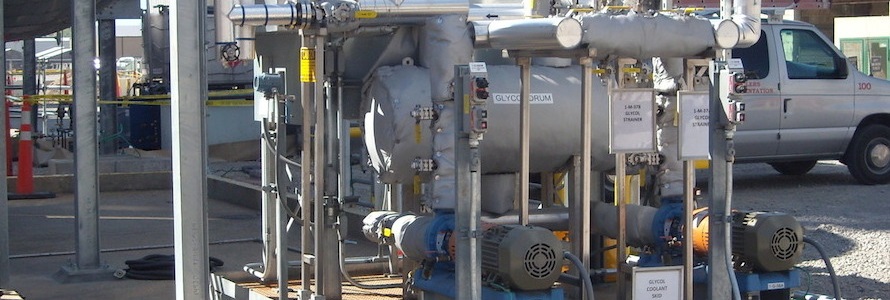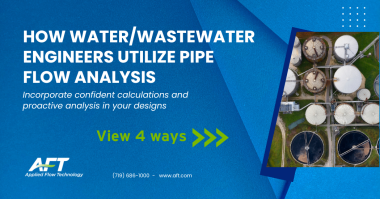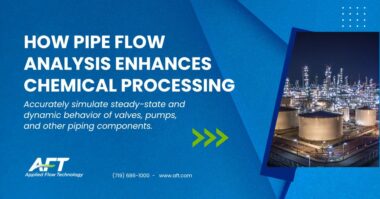Background
ExxonMobil is the world’s largest publicly traded international oil and gas company. They hold an industry-leading inventory of global oil and gas resources, are the world’s largest refiner and marketer of petroleum products, and their chemical company ranks among the world’s largest. Through the application of science and innovation they find better, safer and cleaner ways to deliver the energy the world needs.
ExxonMobil’s Joliet, Illinois Refinery is a key supplier of refined petroleum products to the Midwest, a leader in energy efficiency among U.S. refineries, and a prime example of a facility that uses new technologies to stay ahead of the industry curve. Recently, they purchased and installed the Tracerco Profiler™, which is a nucleonic instrument used to measure vertical distribution of oil, gas, foam, emulsion, water and sand in real time at high resolution. This patented instrument is a ‘window’ into a vessel, which enables an operator to improve production throughput, reduce the number of unscheduled shutdowns and achieve significant cost savings.
The main component in this system is a radioactive isotope, which generates large amounts of heat during normal operation – this condition requires an integrated, fail-safe cooling system to operate. Since the Profiler doesn’t include this cooling system, ExxonMobil called upon their trusted engineering and consulting partner, Ambitech, to find a company who could develop one for them.
Ambitech wasn’t simply looking to place an order for a piece of equipment; they were looking for a trusted partner who could deliver a custom solution on time and with no surprises for one of their most-significant clients. After an exhaustive search they found Fluid Cooling Systems (FCS).
Challenge
It is expected that a project of this nature, a nuclear application at an ExxonMobil facility, would be challenging. It didn’t disappoint. Ambitech subjected FCS to a thorough vetting process to ensure they could handle such a complex, technical project. They also informed FCS that they’d be working within a compressed schedule.
As anyone who has worked with a client like ExxonMobil knows, there are requirements that must be followed to help ensure success. FCS had to read and adhere to ExxonMobil’s Global Practicesdocumentation, and purchase components from their Approved Manufacturers List, which resulted in over 1,000 pages of documentation that needed to be reviewed and adhered to throughout the project. Here are two of the more significant requirements:
Submittals/reviews/approvals. Every phase, every component, had to go through a thorough process whereby FCS prepared submittals for review and approval by ExxonMobil and Ambitech. This included everything from components to shipping materials. Additionally, each process had to be defined, documented and approved before work could commence.
Non-destructive examination (NDE). Third-party NDE tests were performed on every component. These included: Positive Material Identification, Hydrostatic Test, Liquid Penetrant Test, Visual Examination, Radiographic Examination (x-ray), Magnetic Particle and Ultrasonic Examination.
This project would be a true test of FCS’s mettle, and one that would require strict attention to detail. Additionally, this was the first Tracerco Profiler application for ExxonMobil, so there were unknown elements that all parties would have to contend with.
The FCS team is used to providing custom, one-of-a-kind solutions, but there would be greater demands and more eyes on them this time. Extra effort would be required, and costs would be higher, but these extra steps are part of ExxonMobil’s strict global requirements, and were important to all stakeholders to ensure trouble-free development, installation and operation.
Execution
The level of detail and thorough preparedness of ExxonMobil’s planning and engineering team was impressive. This helped FCS to hit the ground running, which was essential in this situation with a tight timeline and a high-profile client. After passing the extensive vetting process, digesting the specifications, passing a shop inspection, conducting a site visit and adhering to a host of other vetting procedures, FCS was ready to start in earnest.
From the onset, every member of the FCS team had to become intimately aware of all project requirements – this meant having to understand the documentation inside and out. Doing so helped make production and inspections more efficient since everyone was working toward shared goals and understood all requirement details.
FCS documented every process required to complete this project. In several instances, new processes were developed to meet ExxonMobil’s specifications. These were all presented to ExxonMobil and Ambitech who reviewed, commented and approved each process.
Since frequent third-party inspections were part of the requirements, the FCS team decided to take advantage of them. They forged a great working relationship with the inspector, who was tough but fair. FCS treated inspections as an opportunity to get one step closer to delivering the final product.
Construction was time-consuming, mainly because of the stringent specifications and frequent inspections. However, working through a thorough process every step of the way helped ensure the end product was problem-free and could be shipped to the job site as specified, without any quality concerns.
Outcome
The custom cooling system shipped within the agreed-upon timeframe with virtually no issues along the way. As of 14 months after start-up, there have been no warranty calls.
This project was a big milestone for FSC because it was their first oil and gas project and helped them diversify into a market that’s hard to penetrate. It also provided the opportunity to formalize long-held processes and establish new ones that will benefit future projects and help them strive for continued excellence.
FCS was able to forge deep relationships with key stakeholders. They adhered to strict requirements and showed they are capable of following detailed specs and delivering as promised. It is not lost on them how fortunate they are to have been considered for this project. And, they proved to be more than up to the task of providing a first-of-it’s-kind solution for one of the world’s largest and most recognized companies.





Comments